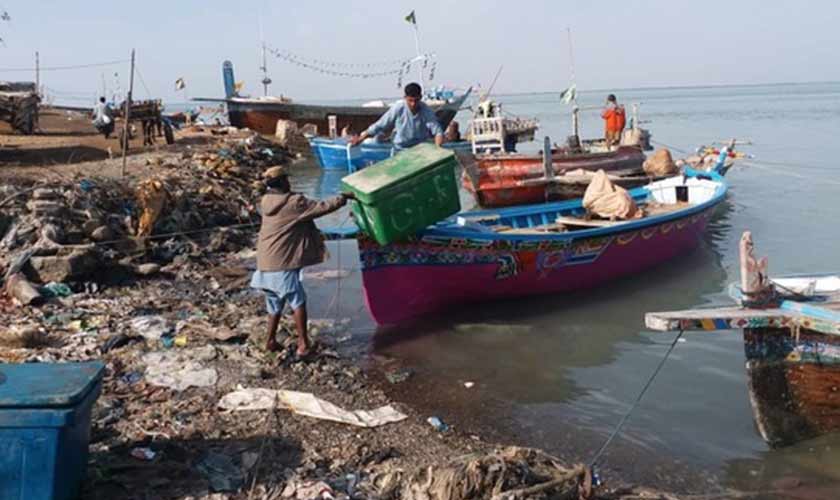
Fishermen Demand to Return to the Sea
Overwhelmed by mounting restrictions and dwindling fish stocks, fishermen across the globe have taken a defiant stand, demanding the right to return to the open waters.
Overfishing and Climate Change
Years of overfishing and the relentless impact of climate change have brought many fisheries to the brink of collapse. As fish populations decline, so too do the livelihoods of those who depend on them.
Government Restrictions
In response to the crisis, governments have implemented stringent regulations, limiting fishing days, quotas, and gear types. While these measures are intended to protect fish stocks, fishermen argue that they unfairly target artisanal and small-scale operators.
Economic Hardship
The restrictions have severely impacted fishing communities, driving many out of business. Fishermen struggle to pay for fuel, repairs, and crew salaries, forcing them to seek alternative employment.
Call for Sustainable Fishing
Recognizing the urgent need for change, fishermen are demanding a sustainable approach to fishing. They urge governments to invest in research, enforce fishing regulations, and provide compensation for those affected by the restrictions.
Demand for Access to the Sea
At the heart of their demands is the fundamental right to access the sea. Fishermen argue that they have a centuries-old tradition of navigating and harvesting the ocean’s resources. They reject government claims that their activities are endangering fish stocks, pointing instead to industrial fishing and environmental degradation.
Global Protests
The fishermen’s movement has gained momentum worldwide. Protests and rallies have been held in major fishing hubs, including Chile, Peru, Iceland, and the United States. They have pressed their demands on government officials, calling for action to protect their livelihoods and the future of fishing.
The Way Forward
The future of fishing lies in a delicate balance between conservation and social equity. Fishermen must recognize the need for responsible fishing practices, while governments must ensure that regulations are implemented fairly and that alternative livelihoods are provided for those affected. Only by working together can we preserve the livelihoods of fishing communities, protect marine ecosystems, and ensure the availability of seafood for generations to come.Hundreds of Unemployed Fishermen Demand Return to the Sea
Hundreds of Unemployed Fishermen Demand Return to the Sea
On June 11, 2024, a group of unemployed fishermen gathered in Windhoek for a peaceful demonstration, demanding their return to the fishing industry.
Frustration with Unemployment
The fishermen, who had lost their jobs during a strike in 2015, expressed frustration with receiving salaries between N$4,000 and N$5,000 for not performing any work under the Government Employment and Reparation Program (GERP). They emphasized their identity as fishermen and sought employment on fishing boats.
Ineffective Government Interventions
Despite a 2020 Cabinet decision ordering the Fisheries and Labor ministries to ensure full-time employment for former fishermen, the fishermen reported a lack of progress. They submitted petitions to the ministries but received no response.
Mismanagement and Corruption
The group’s spokesperson, Godfried Kuhanga, highlighted the dire situation facing the fishermen and accused fishing companies of exploiting fishing quotas for their own benefit. He alleged unfair labor practices and corruption within the industry.
Ministerial Response
Leevy-Lee Abrahams, assistant to the Minister of Fisheries, acknowledged the fishermen’s concerns and promised to deliver their petition to the minister. He admitted that finding work at sea for all former fishermen would be challenging as jobs had been filled by other Namibians.
Meeting with Labor Ministers
In late May, Fisheries Minister Derek Klazen and Labor Minister Utoni Nujoma met with fishermen on the coast to address their concerns. The outcome of the meeting was not mentioned in the article.Local fishermen are demanding to be allowed to return to the sea after being banned from fishing for several months due to a marine conservation project. The fishermen say that they have lost their livelihoods and are struggling to feed their families. The marine conservation project was put in place to protect the local marine ecosystem, which has been damaged by overfishing and pollution. The project has been successful in reducing the number of fish caught, but it has also had a negative impact on the local fishing industry. The fishermen say that they are willing to work with the authorities to find a sustainable way to fish, but they need to be allowed to return to the sea. They say that they have been fishing in the area for generations, and they have a right to continue doing so. The authorities say that they are committed to protecting the marine ecosystem, but they are also aware of the need to support the local fishing industry. They say that they are working on a plan to allow the fishermen to return to the sea, but they need to make sure that it is done in a way that does not damage the environment.